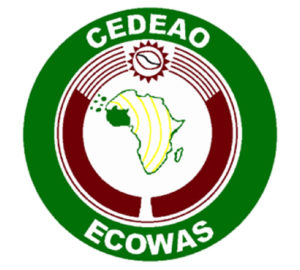[ad_1]

He said the 40-year plan, which began in 2010 to 2030 is also geared towards reducing importation of goods outside the sub-region.
Dr Ojoku who stated this in a two-day seventh Ghana International Trade and Finance conference (GITFiC) in Senchi in the Eastern Region on zoom said the plan if well executed could reduce import bills of member countries.
The conference among other things held panel and consultative discussions and had media engagements on some pertinent issues in the African continent.
It was attended by patrons from at least 10 African countries.
Speaking on Trade and healthy investment on the theme: “Actualising Africa’s Industrialization agenda in the era of AfCFTA: The role of Africa’s Small and Medium scale enterprises:The ECOWAS perspective, Dr Ojoku named the four areas as: Agro-Industry and Agro-business, Constructional Industry, Automotive Industry and ICT.
On Agro-business and Agro-Industry, he said ECOWAS was working with the European Union for the food value chain while liaising with member states to upscale their areas of specialization and where they had comparative advantage.
He said textiles and garments were areas that ECOWAS countries could take advantage of to earn adequate foreign exchange.
Dr Ojoku said ECOWAS was also working with the African Development Bank(AfDB) to uplift the production levels of Pharmaceutical Companies and also liaising with West African Health Organisation to build the capacities of health organisations and Pharmaceutical Companies especially after experiencing Ebola and COVID-19 in the sub-region.
Dr Ojoku said ECOWAS was also discussing with the World Bank to support member states to increase the production of cement, iron roads and other important construction materials to avoid importing them from Europe and Asia.
Mr Asser Nashikaku, Chief Trade Negotiator from Namibia called on member states to back their Industrialization agenda with adequate budgetary allocations to be able to execute.
In doing so, he said there should be adequate infrastructure to support Industrialization.
Mr Nashikaku advised that for them to move beyond the confines of the continent in terms exporting their products, there was the need to keep to international standards.
He called for serious investment in the raw materials to gain more income rather than exporting in their raw state.
He commended the GITFiC for bringing together major industry players to deliberate on pertinent issues concerning trade and industry as that could serve as a springboard for regional integration.
Odeheno Kwafo III, Paramount Chief of the AKwamu Traditional Area during the opening ceremony commended the GITFiC for the programme and promised to support it into fruition for posterity.
He said although there were hardships, there was the need for a public and private partnership to harness the development potential of the country.
Mr Selasi Koffi Ackom, Chief Executive officer of GITFiC said at the end of the conference a consensus on a single currency was arrived at and hoped that would spiral trade and industrialization.
Some of the important issues discussed included Prospects on Africa’s single currency, Actualising Africa’s industrialization agenda in the era of AfCFTA: The role of Africa’s Small and Medium scale enterprises – The ECOWAS perspective, sovereign economic vulnerabilities.
Source: GNA
[ad_2]
Source link
